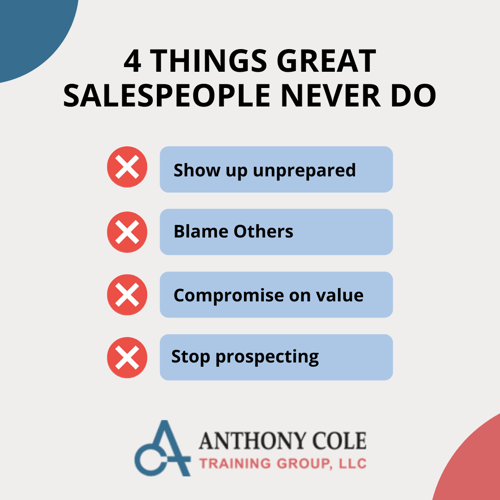SMA stands for Severe Mental Anguish. Is this something that your salespeople are uncovering in their prospects? This video is a part of our new series with Mark Trinkle: The 10 Commandments of Sales Success. Watch Commandment #4 now!
Watch all of the Commandments Here
Today we will discuss the fourth commandment of the 10 Commandments for Sales Success. Today's commandment is, thou shalt always remember that a prospect without severe mental anguish is actually not a prospect at all. Now, we use the acronym SMA for Severe Mental Anguish. If you don't have pain, then you don't have a prospect. I'm not saying you don't have somebody that might not eventually be a prospect, but you don't have a prospect today. Maybe you've got someone that you should build a relationship with. You should continue to drip on and nurture that relationship. But let me tell you for the last time what you don't have. You don't have somebody that you ought to be presenting to without a doubt.
Listen, at some point in your conversations with your prospect (and while we are huge fans of you asking open-ended questions, because those facilitate conversation) there is one close-ended question that you should feel comfortable asking, and that is simply, "Hey, Mr./Mrs. Prospect, do you have to solve this problem? Is your problem just a problem? Or is it a priority that you have to fix? Not one you'd kind of like to fix. Do you have to fix that problem? Is it a top-of-the-pile kind of problem? Is it something maybe you can just wait on while you deal with other priorities?" You need to know that. And of course, it's not that easy. In our track record as a company of over 30 years of working with salespeople and sales organizations, we know that there's always something that gets in the way of salespeople asking that question.
And the answer is, typically, they're either afraid, or they have a really low pipeline, and they're just thankful that they've even got the chance to deliver a presentation. Now, I'm going to guess that in your organization, you don't make much money, if any, delivering presentations to prospects who aren't qualified or even deemed worthy of receiving them. Remember, at the end of the sales process, just like at the end of this road in the beautiful countryside here, your prospect has a decision to make. They can either make a change and deal with the problem, or they can decide, you know what? I'm gonna turn my car to the right. No change from me. We're gonna continue to deal with the status quo.
Here's my last question as I close, when do you want to know their answer to that question? Have a great day, everybody. Take good care.




